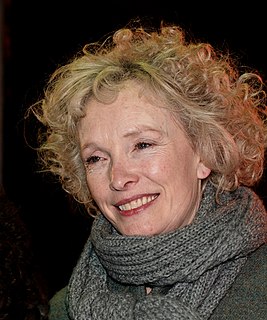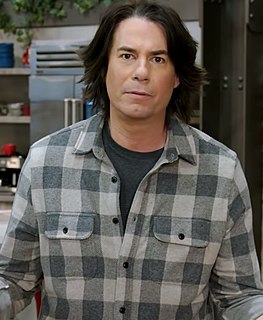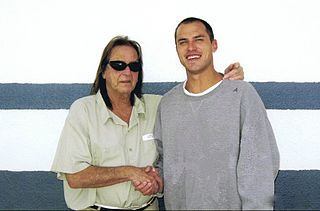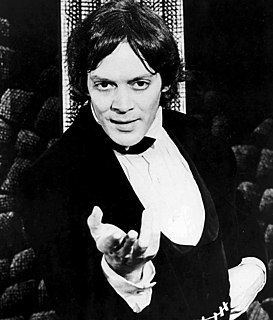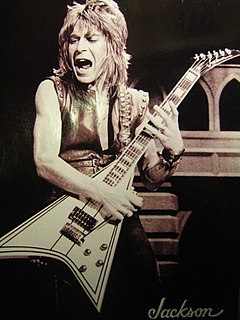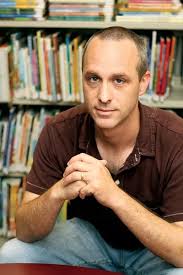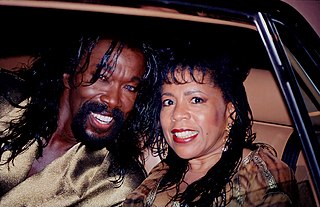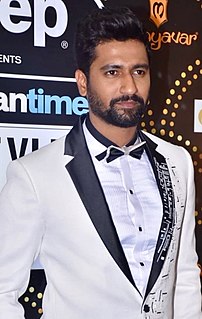A Quote by Lindsay Duncan
My parents' generation was definitely pre-telly, and they knew how to entertain each other. Everybody knew something that they could do - a song or a poem, or a piece of music. At school, I remember being a cat and then a budgie and then a bumble bee. I obviously thought all that was marvelous.
Related Quotes
Right away, I knew I didn't want to have that look of other guys with long hair and bell-bottom pants, because everybody else had that look. I kind of adopted my boarding-school look, which made me stand out. Then the next thing you know, the first song on my first record is a song called "School Days." It's about going to the boarding school I went to. So then I just started to write about myself. The very first song I ever wrote was about a guy I met in a boatyard that we were working in. So I've always had this thing about sticking to more or less what I knew.
I thought cocaine was a fantastic drug. A wonder drug, like everybody else. It gave you [an] energy burst. You could stay awake for days on end, and it was just marvelous and I didn't think it was evil at all. I put it almost in the same category as marijuana, only hell of a lot better. It was a tremendous energy boost. It gave the feeling, a high, but nobody knew, well maybe a small percentage of people knew. But eventually everybody knew how evil it really was.
My parents thought, 'Oh, my God! What's wrong with him? He's possessed or something.' All of a sudden, I stood up and started saying my lines. From then on, that was it. I knew there was something special about the theater for me, something beyond the regular reality, something that I could get into and transcend and become something other than myself.
I know who you are in your heart,' Andres said. 'That's all that matters.' And that was it. That was the moment. Now I knew how I would feel if I ever lost him. That was how you knew love. My mother had told me that. All you had to do was imagine your life without the other person, and if the thought alone made you shiver, then you knew.
Both of my parents are music teachers. My mother owns the school that I taught in. My brothers and sisters are musicans. My mom pushed me all the time. She knew that I could do it. She knew more than I did. She thought I would go somewhere. She gave me the job and helped me get equipment, which a lot of parents don't do. Alot of my students had to go out and fight for it.
No sooner had he thought this than he realized what was anchoring his happiness. It was purpose. He knew what he wanted to do. He knew the way he thought things should be, and Mr. Harinton was proving that other people--even adults--could feel the same way. Nicholas had something to aim for now. He might not know what he wanted to be when he grew up, but he knew with absolute certainty how he wanted to be.
Before I even knew what stand up was, I tried to make people laugh at school because that was how I made friends, so I think that's how I got drawn into comedy and obviously I was just some kid at school being silly, so the first time I saw a professional comedian and how smooth and funny the person was I totally got into standup and I would say obviously Richard Pryor was the guy. He's the greatest of all time and then George Carlin, Sam Kinison, Bill Cosby. It's so weird to bring up his name now but leaving out his off-stage antics... you could learn a lot from him.
Both my grandmothers had upright pianos, and I just knew how to play since I was a child. Nobody taught me. I sounded like a grown-up, and then I learned how to read music. I played so well by ear I could fool the teacher to believe I could play the notes. She'd make the mistake of playing the song once, and I could play it.
And I knew in my bones that Emily Dickinson wouldn't have written even one poem if she'd had two howling babies, a husband bent on jamming another one into her, a house to run, a garden to tend, three cows to milk, twenty chickens to feed, and four hired hands to cook for. I knew then why they didn't marry. Emily and Jane and Louisa. I knew and it scared me. I also knew what being lonely was and I didn't want to be lonely my whole life. I didn't want to give up on my words. I didn't want to choose one over the other. Mark Twain didn't have to. Charles Dickens didn't.
In the 1960s when the recording studio suddenly really took off as a tool, it was the kids from art school who knew how to use it, not the kids from music school. Music students were all stuck in the notion of music as performance, ephemeral. Whereas for art students, music as painting? They knew how to do that.
I live my life by these little church signs you see as you drive around, and there's one near me that says, 'If we really knew each other, we would neither idolise nor condemn.' And that's it: if we all knew each other, then we wouldn't treat anybody any different. And there wouldn't be any big stars, I guess.
Mystics knew how to channel grace through prayer and they knew the power of that. They knew how to receive guidance through reflection and contemplation; they knew how to share the gift of illumination with each other. These are great gifts of life and profound grace that we are capable of providing for each other and the world. This is what it means to be a mystic without a monastery. You make a commitment to your own interior illumination and through that discover the "sacred" part of your "contract" and the true meaning of your highest potential.
